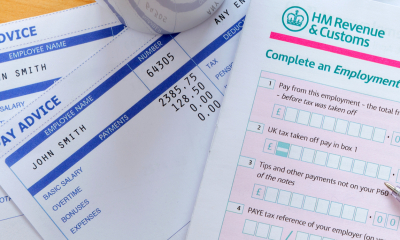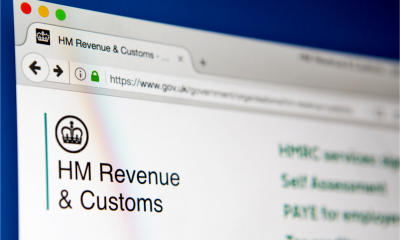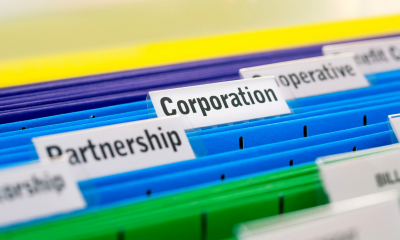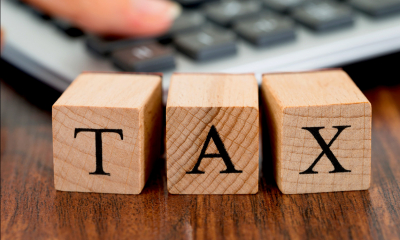
Many tax payers are affected by self assessment, including the self-employed and high earners. If you are one of them, there is no need to be concerned. As long as you keep detailed financial records and meet the deadlines for completing the return and paying tax, you should not have a problem.
Does self assessment apply to you?
1. Does self assessment apply to you?
You may need to complete a self assessment tax return
This includes if you:
- are a sole trader earning more than £1,000;
- are a partner in a business partnership;
- have a total income over £150,000 or have complicated tax affairs;
- have an income over £60,000 and either you or your partner receive child benefit;
- get income from savings, investments or dividends;
- have property income over £10,000, or profits over £2,500;
- need to pay capital gains tax on assets you have sold;
- are a religious minister, Lloyd's underwriter, examiner or share fisherman.
You can check whether you need to send a tax return.
You may need to register for self assessment
- If you did not send a return last year, you can register online . You must register within six months of the end of the tax year (ie by 5 October).
- If you filed a tax return last year, HM Revenue & Customs will normally send you a reminder automatically. It is your responsibility to file a return even if HMRC does not remind you.
You may need to contact HMRC even if you aren't required to complete a self assessment return
- You must notify HMRC if you have untaxed income. For example, if you earned more than £1,000 from property (but less than the £2,500 which would require you to register for self assessment).
- You may want to register for self assessment to claim some income tax reliefs.
- You may need to register for self assessment to be able to claim benefits as someone who is self-employed.
Many people do not need to complete a self assessment return
- If your only income is as an employee paid through the PAYE system, or from a pension where tax is already deducted, you are unlikely to need to submit a tax return.
- You do not need to declare or pay tax on small amounts of income from savings interest (less than £500-£1,000, depending on your total income), trading (less than £1,000), property (£2,500), dividends (£500) or renting out a room in your home (£7,500).
Most tax returns are filed online
- You can use the free HMRC Self Assessment online service or commercial software, or you can file a paper return instead.
- Make sure you complete all the necessary pages.
- Once you have filed a self assessment tax return online, HMRC will send you a notification each year rather than the paper self assessment forms.
2. Your obligations
HMRC must receive your tax return by the fixed filing date
- The fixed filing date for online submissions is 31 January.
- The deadline for paper tax returns is 31 October, but you should allow a few days for postal delays.
- If you file online by 30 December, or submit a paper return by 31 October, HMRC may be able to collect any tax due by reducing your PAYE code for the next year. You must owe less than £3,000.
- If you return your completed form online, HMRC will calculate any tax due automatically. Your final tax calculation will be available online within 72 hours.
- If you miss the deadline, you will incur a fine of £100. There are additional fines for returns which are filed more than three months late. The fines increase again after six and 12 months.
You must pay your tax on time
You must keep detailed records to support the information in your tax return
- The self-employed, those in partnership and those who let property must keep records for five years after the filing deadline.
- If you are not running a business, you are normally required to keep records for a year after the filing deadline.
- If you fail to keep adequate records, you can be fined.
When is the tax due?
There are two tax payment dates in the year - 31 January and 31 July.
If you are an employee, you may only need to make one payment
- Under PAYE, tax is automatically deducted from your salary throughout the year.
- Any extra tax you owe is due by 31 January (ten months after the end of the tax year).
- If you owe less than £3,000 and submit your return in time, the tax can be collected from your salary under PAYE.
If you are self-employed or owe additional tax, you usually make two payments 'on account'
- These are based on your profits for the previous year.
- The first has to be paid by 31 January, before the end of the current tax year. The second, by 31 July, is after the end of the tax year.
- Any outstanding balance must then be paid by the following 31 January.
Interest and penalties are charged on late payments
- A 5% surcharge will be charged on any outstanding tax remaining unpaid after 30 days.
- A further 5% surcharge will be charged on any outstanding tax remaining unpaid after six months.
- An additional 5% if the tax is unpaid after 12 months.
3. The tax return
Self assessment returns vary in length as they are tailored to each individual's circumstances
- HMRC's online service asks a few simple questions to identify which questions you need to answer.
- If you complete a paper return, you must request any additional pages you require.
Everyone must fill in the main section of the tax return
This covers:
- income from savings and investments;
- pensions;
- tax allowances and tax reliefs;
- state benefits.
You must also complete the sections covering your types of income and gains
You may need to complete:
- Employment section, for each job where you were an employee.
- Self-employment, if you were a sole trader (not in partnership) or had self-employed income in addition to your main job (eg freelance or consultancy earnings).
- Partnerships, if you had partnership income. (One partner also needs to complete a partnership return.)
- UK property, if you received rental income over £1,000.
- Foreign, if you had income from overseas investments, pensions, benefits and rents. You do not need to complete this form for overseas employment, unless you have been taxed both overseas and in the UK and want to reclaim tax.
- Trusts, if you received income from a trust fund or have set one up.
- Capital gains, if you disposed of assets and the gains were over £3,000 (£6,000 in 2023/24) or the total proceeds were more than four times this amount. You do not normally need to complete this form for private possessions, such as your main home or private cars, unless they were used for business.
- Residence, remittance basis, if you lived or worked abroad during the tax year.
4. Record-keeping
Before completing your tax return, it is essential that you gather all the information you need.
Employment
You can copy most of the information required from documents given to you by your employer. These include:
- Your P60 showing how much income tax and National Insurance you have paid during the tax year. Your employer should give this to you by 31 May following the end of the tax year on 5 April.
- Your P11D or statement of payrolled benefits, if you receive any employee benefits or expenses. Your employer should give you this by 6 July.
- Your P45 (Part 1A) if you left employment during the tax year.
Self-employment or partnership
You will need:
- Details of income and expenses during your last accounting year.
- Profit and loss accounts. You will also want a copy of the previous year's accounts for reference.
- Copies of your 'statement of account' forms, showing you how much tax you have already paid.
- Your balance sheet (if you have one). If you do not have a balance sheet, you can leave this section of your tax return blank.
Savings and investments
You will need:
- Bank and building society passbooks and statements.
- Annual investment statements from unit trust and investment trust companies. ISAs do not need to be declared on your tax return.
- Share dividend tax vouchers.
Personal pension plan
- If you contribute to a personal pension plan, you will need your annual contribution statement from your plan provider.
5. Completing the return
Collect all your tax return forms, guidance notes and paperwork before you start to complete the return either online or on paper.
Complete the return online
- The HMRC online service allows you to enter, change, delete and save any entries; so you can review the data before you finalise the return for submission. You can also print or keep a copy for your records.
- Only include income and gains during the tax year - from 6 April to 5 April - unless asked to do otherwise.
- Once you are happy with your return, submit it. You will be sent a receipt for your records.
- HMRC will produce a tax calculation giving details of the amounts due and payment dates.
Complete a paper return
- Write in pencil so you can make corrections. Once you are happy, complete the return in ink.
- If you are unsure about an answer, give as much extra detail as possible. This may help you avoid an enquiry.
- Check your tax return before sending it off. Make sure that you sign the return (this is one of the most common mistakes) and include all the paperwork you have been asked for.
- Use registered post to keep track of your return.
Wait for HMRC to respond
HMRC will:
- check for mistakes and then send you a new tax calculation if necessary;
- calculate your tax bill (if you have not done this already);
- notify you if it plans to enquire into your return.
You can change your tax return if you realise you have made a mistake
- You can update the return within 12 months of the fixed filing date.
- If you want to change mistakes later than this, you must write to HMRC.
All small businesses and personal tax payers have their own personal tax accounts
- The accounts allow people to see their tax transactions across the range of personal and business taxes including self assessment, corporation tax, VAT and PAYE for employers.
- You can make payments online at any time.
- Eventually this will remove the need for an annual return.
You must pay any tax owing by 31 January even if you do not receive a demand
- Those who keep their records digitally and who submit regular digital updates to HMRC can pay tax on a 'pay-as-you-go' basis.
6. Self assessment help
Half of all taxpayers complete their returns without professional help
- If you are an employee, filling in your tax return is usually straightforward. Provided you have the correct information, it should take no longer than a weekend.
Make the most of HMRC advice and online services
- Consider using the HMRC Self Assessment online service to file your return. It is secure and will calculate your tax automatically.
- Use the guidance notes sent with your tax return.
- Ring the Self-Assessment helpline (0300 200 3310) and ask for free advice.
Consider employing a qualified accountant or tax adviser
- You may want to do this if you are self-employed or have complicated financial arrangements.
- A good accountant or tax adviser will be able to calculate your tax bill and ensure you pay the right amount of tax.
- Your adviser's fees may be a tax-deductible expense.
Choose your adviser carefully
- You may want to use a qualified accountant or tax adviser, particularly for tax planning advice.
- An accounting or tax technician may offer less expertise (but lower fees).
Remember your responsibilities
- Even if you employ an adviser, you may have to do the day-to-day paperwork yourself unless they provide you with bookkeeping services. You will have to supply details of income, invoices, receipts and expenses.
- It is still your responsibility to ensure that your tax return is correct and filed by the deadline, and that any tax due is paid on time.
Signpost
- Find guidance on self assessment tax returns on GOV.UK.
- Find self assessment forms and helpsheets on GOV.UK.
- Make a self assessment enquiry to HMRC (0300 200 3310).
- Find guidance on claiming a tax refund on GOV.UK.
- Find an ICAEW chartered accountant, an ACCA accountancy firm, an ICAS chartered accountant or a CIMA management accountant.
- Find a chartered tax adviser belonging to the Chartered Institute of Taxation (020 7340 0550).
- Find a member of the Association of Accounting Technicians.
Expert quote
"The most important thing is to ensure that your records (of income and expenditure) are well organised and that you retain invoices and receipts to support all amounts claimed on your tax return. That way if HMRC ever enquires into your figures you will save a lot of stress and fees." - Martin Dunne, Sayers Butterworth LLP


